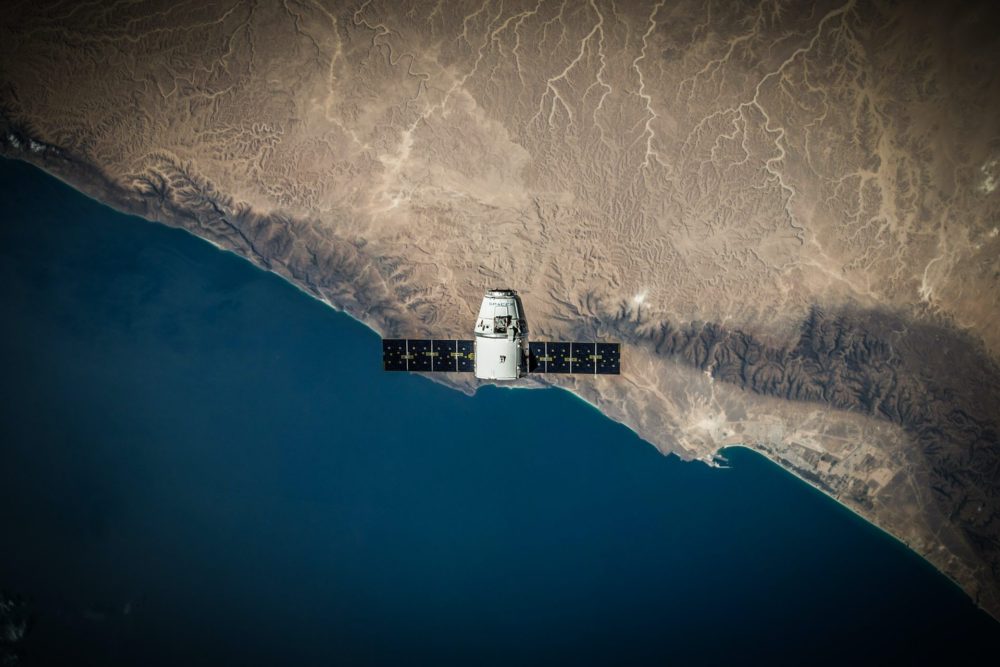Indian satellite imaging startup Pixxel has emerged from stealth mode with $7.3 million in seed funding, it revealed today.
Agrifoodtech specialist VC Omnivore and US accelerator Techstars were among the new investors to come on board, joining earlier backers including Blume Ventures, GrowX, and Lightspeed Venture Partners.
Bengaluru-based Pixxel says its aim is to establish a high-resolution hyperspectral satellite constellation that can act as a “health monitor for the planet,” offering “some of the richest imagery that’s ever been beamed down to Earth” for use in agricultural, energy, and environmental conservation efforts.
Most satellite imagery today is multispectral, capturing light reflected from Earth’s surface in eight to 14 bands of blue, green, and red. Pixxel claims its hyperspectral tech can provide “50x more information” by capturing that reflected light in much narrower bands — between 150 and 300 of them — and therefore in far greater detail.
This allows it to achieve things like detecting precise chemical signatures from plants or soil, which could prove crucial for farmers seeking to better regulate their input and water usage, or calculate how much carbon they’re sequestering.
The startup — which aims to launch its first satellite into space within the next few months — says its ultimate objective is to provide 24-hour, worldwide coverage at a higher resolution and a lower cost than its competitors such as Planet and Orbital Sidekick, both from the US.
To date, it has partnered with the likes of the Indian Space Research Organization (ISRO), NASA‘s Jet Propulsion Laboratory, and US satellite manufacturer Maxar.
Hyperloops & asteroid mines
“Kshitij and I have always loved space,” says Pixxel CEO Awais Ahmed, referring to fellow co-founder and chief technology officer Kshitij Khandelwal.
That passion for all things space began for Ahmed when he got a chance to work at ISRO as a student. It was further enflamed later on, when he became a founding member and engineering lead at vacuum-tube transportation project Hyperloop India.
“For the hyperloop, we were in Los Angeles at the SpaceX HQ and they took us on a tour of the factory. Looking at the rocket engines being built and the Falcon 9 booster that had landed back from space, I knew then that space was what I wanted to do for the rest of my life.”
On his return to India, Ahmed began reading as much as he could about the nascent space tech sector, initially settling on asteroid mining as his raison d’être.
“I realized that finding and mapping these asteroids was the first step towards realising that vision. And the technology that enabled us to do that is hyperspectral imaging,” he explains.
“Reading up more about it, I realised that hyperspectral has a plethora of use cases for Earth and hence the idea for Pixxel was born. Doing hyperspectral imaging from space for Earth, using a constellation of [earth observation] satellites first to build a sustainable business, and then using the same tech to scout asteroids down the line – I pitched the idea to Kshitij over video game sessions, and we haven’t looked back since.”
Bringing costs down, resolution up
Hyperspectral sensing isn’t new to farming. But its use has been piecemeal due the high cost of building the requisite cameras, and has typically been limited to either airplane-mounted or ground-level use.
“It hasn’t been possible from space because the technology to build low-power, low-cost, but high-performing cameras at a spatial resolution that makes sense has only been realized in the past few years,” Ahmed says.
“Sensors like the NASA EO-1 satellite or AVIRIS have shown that hyperspectral has immense use cases for ag, climate change, [and so on] but cost and size were the hurdle to achieving scale.”
Pixxel is bringing costs down by basing design and manufacturing in India, working in close tandem with ISRO.
“ISRO has always been known for punching way beyond its weight with much lower resources than other space organizations. We are utilizing the same resources and approach where we are able to do this at low cost without compromising on technology and quality,” Ahmed says.
The Pixxel team designs both the constellation satellites and the camera equipment they carry. Each of its satellites will provide a five-meter resolution along with high spectral resolutions.
It plans to make money by selling its imagery — plus add-ons such as processing and labeling of the images, machine-learning modeling, and delivery of actionable insights — to governments and ag cooperatives.
Ahmed says the startup will use its seed funds to accelerate development of its second and third satellites “as well as build the foundation for the upcoming constellation next year,” with the aim of launching 30 satellites by the end of 2022. It will also use some of the capital to boost its commercialization efforts.
“We are pleased to back Pixxel and have high hopes for its hyperspectral technology, which should have transformative use cases across the entire agri-value chain,” Omnivore managing partner Mark Kahn said in a statement.
“Predictive insights from Pixxel’s satellite imagery will augment agricultural productivity and make farming more remunerative for farmers.”
Comment? News tip? Story idea? Email me at [email protected] or find me on LinkedIn and Twitter





